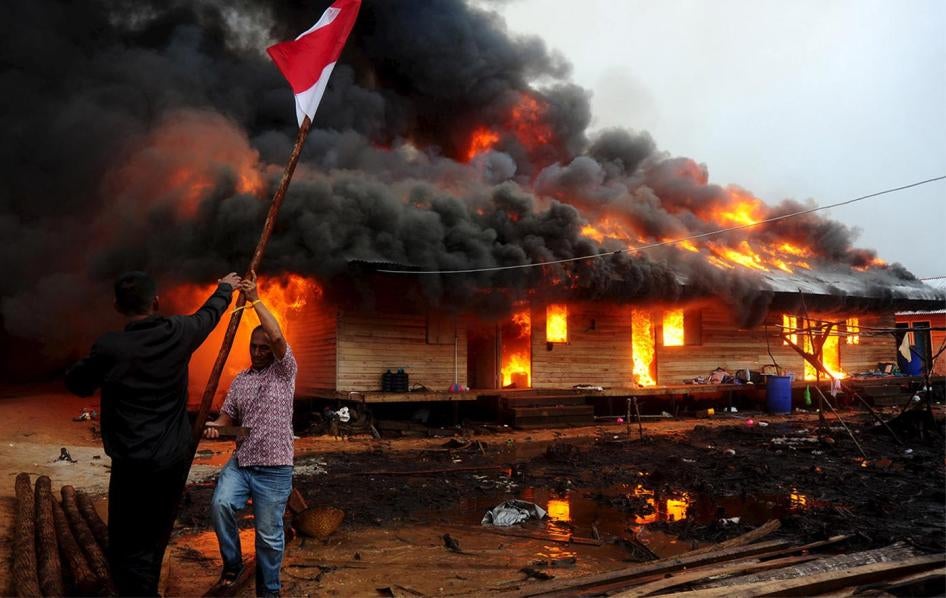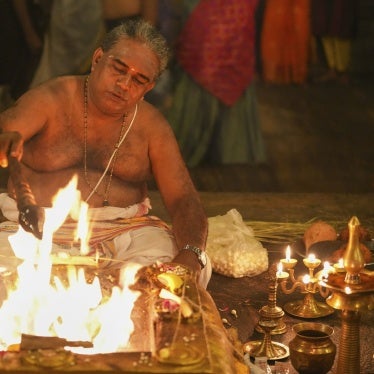Acts of religious intolerance and violations of religious freedom increased in Indonesia in 2016, with the country’s religious minorities bearing the brunt of the rise.
The Setara Institute, a Jakarta-based organization that monitors religious freedom, reported an increase in acts of religious intolerance from 236 in 2015 to 270 in 2016, while religious freedom violations rose from 197 to 208.
More than half the incidents of religious intolerance – 140 – implicate government entities, including local government administrations and police. The most notorious example of religious intolerance was the complicity of Indonesian officials and police in the violent forced eviction of more than 7,000 members of the Gafatar religious community from their farms on Kalimantan island beginning in January 2016.
Non-state actors including the Indonesian Ulema Council (MUI), a semi-official umbrella organization of Islamic groups, and the Islam Defenders Front (FPI), a thuggish militant Islamist group that campaigns for imposition of Sharia (Islamic law), were linked to 130 religious intolerance incidents. They included the MUI’s issuance in February 2016 of a fatwa, or decree, that declared Gafatar “heretical.” Setara implicated the FPI in 17 incidents of violence against religious minorities in 2016, including Ahmadiyah and Christian congregations.
The escalation in religious intolerance and related violence can be traced back to 2005, when then President Susilo Bambang Yudhoyono effectively legitimized religious intolerance by vowing strict measures against “deviant beliefs.” During his decade in office, Yudhoyono turned a blind eye to worsening acts of religious intolerance and violence by militant Islamists against religious minorities.
Indonesia’s legal system perpetuates discrimination against religious minorities. Laws include the house of worship regulation, which requires minorities to get official approval to construct or renovate houses of worship, and the blasphemy law, which punishes deviations from the six officially protected religions with up to five years in prison. The blasphemy law has been used to prosecute and imprison members of religious minorities and of traditional religions. The most recent high-profile targets of the blasphemy law include Jakarta Governor Basuki Purnama, FPI leader Rizieq Shihab and three former Gafatar leaders now on trial in Jakarta.
Until the Indonesian government eliminates these discriminatory regulations and makes clear that police and government officials will face consequences for any complicity in religious bigotry, religious freedom in Indonesia will remain in peril.









